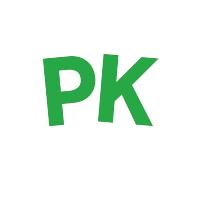-
Play A Remarkable Lovemaking Game With Captivating Pune Escorts.
 1 day ago
1 day ago
You will understand the real meaning of sexual pleasure once you avail Pune escort service from the Punegirl agency.
Welcome to the vibrant world of Pune, where excitement and allure blend seamlessly. If you're looking for a way to elevate your intimate experiences, you've come to the right place. The city is home to an exceptional selection of female escorts who are ready to fulfill your fantasies and desires. Whether you seek companionship or a thrilling adventure in lovemaking, Pun . . .
-
Feel The Warmth Of Digha Escorts On The Romantic Sea Beach.
 2 days ago
2 days ago
Meet a lovely Bengali escort in Digha and enjoy every moment.
As you stroll along the sandy beaches, the allure of this seaside town becomes even more captivating when accompanied by enchanting Digha Escorts. Imagine the warmth of their company as you bask in the beauty around you, enhancing every moment spent in this coastal paradise. Whether you're looking for adventure or relaxation, having a charming companion can turn an ordinary beach day into something truly extraordinary . . .
-
Siliguri, The Gateway Of The Northeast, Has A Significant Nightlife To Be Enjoyed With Siliguri Escorts.
 2 days ago
2 days ago
As the sun sets and city lights twinkle, Siliguri transforms into a playground for those seeking unforgettable experiences. The allure of this bustling town extends beyond its scenic beauty and delicious cuisine—it’s home to some of the most captivating Siliguri escorts who can elevate your night out from ordinary to extraordinary. Whether you’re looking for charming Bengali beauties or stunning Nepali sirens, Siliguri has it all! Let’s dive into what makes spending time . . .
-
Charismatic Pune Escorts Are The Number One Sex Services Provider.
 2 days ago
2 days ago
Welcome to the vibrant world of Pune escorts, where passion meets professionalism.
Whether you’re looking for companionship during a business trip or an exciting night out on the town, finding the right escort can make all the difference. The city is teeming with opportunities, but navigating through options shouldn’t feel like a daunting task. Enter Punegirl agency—a trusted name in providing top-notch escort services without any hassle or scams. With an enticing roster of . . .
-
Ndjeshmërisë Ekspresive Dhe Forcës Kromatike Në Portretin E Vitit 1984
 6 days ago
6 days ago
Shefqet Avdush Emini, Holandë - Orfeu.AL
Shefqet Avdush Emini
NDJESHMËRISË EKSPRESIVE DHE FORCËS KROMATIKE NË PORTRETIN E VITIT 1984
Në botën e artit bashkëkohor, pak janë ata artistë që kanë ditur të krijojnë një gjuhë vizuale unike e të pashoqe, që jo vetëm i mbijetojnë kohës, por e sfidojnë atë. Shefqet Avdush Emini, një nga emrat m&e . . .
-
Shefqet Avdush Emini – The Icon Of Abstract Expressionism And The Portrait Of The Human Soul
 6 days ago
6 days ago
Shefqet Avdush Emini – The Icon of Abstract Expressionism and the Portrait of the Human Soul Translated into Arabic by Poet and translator Lebanese-Brazilian TAGHRID BOU MERHI
Shefqet Avdush Emini – The Icon of Abstract Expressionism and the Portrait of the Human Soul
Translated into Arabic by Poet and translator Lebanese-Brazilian TAGHRID BOU MERHI
In the pantheon of contemporary international artists, Shefqet Avdush Emini holds a unique place as a creator w . . .
-
Animation Is A Successful Career Option After 12th? Graphic Designing
 7 days ago
7 days ago
Animation is one of the most lucrative courses these days and also you get attractive salaries by doing animation. The main thing is that you join animation courses after 12th with any stream like science, commerce and Arts. In Today World, Animation is a successful career option after 12th? for the students because from office to films everywhere there is a huge demand for good and skills animators. You can do Graphic Designing, Web Designing, Interior Designing, 3D-Max, Game Engine and . . .
-
Shefqet Avdush Emini’s Visual Language: Emotion, Expression, And Identity
 13 days ago
13 days ago
Introduction
Shefqet Avdush Emini is a well-known modern painter whose art transcends cultural and geographical limits. Known for his bold, emotional brushwork and expressive forms, Emini has created a strong visual language that speaks directly to the human soul. His artworks are not just creative expressions but also represent his personal experiences, emotional depth, and cultural background. Using color, texture, and symbolism, he explores complex themes of identity, memory, and the hum . . .
-
Shefqet Avdush Emini Në Sarajevë: Identiteti Krijues
 1 month ago
1 month ago
Shefqet Avdush Emini në Sarajevë: Identiteti krijues si akt universal përballë kujtesës së një qyteti të plagosur
Në fotografinë e realizuar gjatë Simpoziumit Ndërkombëtar në Sarajevë, Bosnje, shfaqet artisti i mirënjohur ndërkombëtarisht, Shefqet Avdush Emini, në një akt të thellë të përqendrimit krijues, përballë kanavacave të mbushura me ngjyrë, en . . .
-
Shefqet Avdush Emini Është Një Nga Artistët Më Të Shquar Bashkëkohorë, Me Një Ndikim Të Jashtëzakonshëm Në Artin Ndërkombëtar
 4 months ago
4 months ago
=
Shefqet Avdush Emini është një nga artistët më të shquar bashkëkohorë, me një ndikim të jashtëzakonshëm në artin ndërkombëtar. Ai ka krijuar një stil unik ekspresiv, të fuqishëm dhe emocional, i cili e ka bërë të njohur në mbarë botën. Me ekspozita në të gjitha kontinentet dhe vlerësime të shumta nga kritikët më të njohur të artit, S . . .
|
|